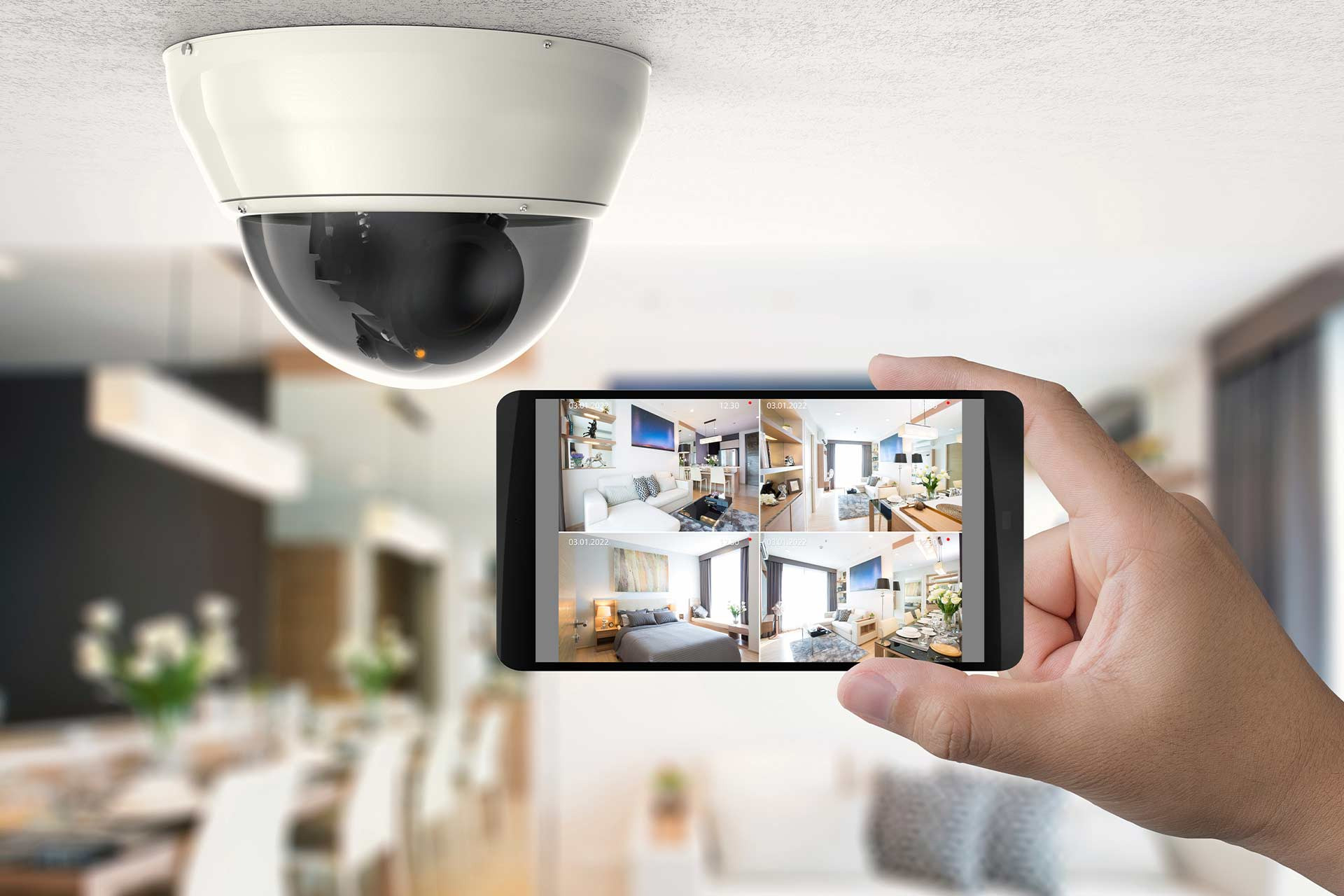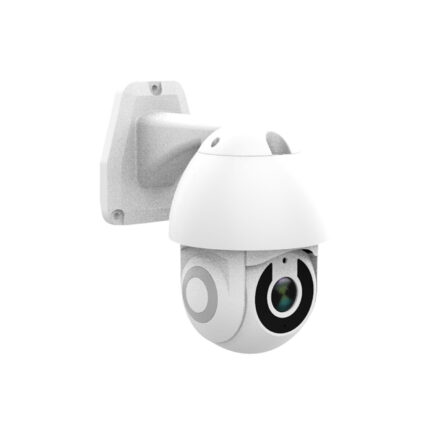I. Introduction
In an increasingly connected world, security and surveillance have become paramount. Whether it's safeguarding your home, protecting your business, or enhancing public safety, Closed-Circuit Television (CCTV) systems have become indispensable tools. They provide a watchful eye when you can't be present, ensuring peace of mind and deterrence against potential threats. This article is your guide to choosing the right CCTV system that perfectly aligns with your unique needs. We'll explore various types of CCTV cameras, kits, specialised options, signage, and key factors to consider, ensuring that you make an informed decision to fortify your security. Let's embark on this journey to discover the CCTV solution that suits your requirements, empowering you to take control of your safety and surveillance needs.

Shop Popular CCTV Camera Categories
II. HD and IP Cameras
When it comes to selecting the right CCTV camera, your first decision typically involves choosing between High Definition (HD) cameras and Internet Protocol (IP) cameras. Each of these camera types offers distinct advantages tailored to specific surveillance needs.
- High Definition cameras, often referred to as HD cameras, come in different resolutions, with 2MP (2-megapixel) and 5MP (5-megapixel) options being common choices. These cameras provide crisp, clear images and videos, making them ideal for capturing fine details. 2MP cameras are suitable for most general surveillance needs, while 5MP cameras are preferred when you require exceptional image quality, such as in commercial or high-security settings.
- Internet Protocol (IP) cameras are known for their versatility and ability to connect to a network, allowing for remote monitoring and management. 2MP IP cameras, for instance, offer high-resolution footage with the added benefit of network connectivity. They are particularly useful when you need to monitor locations over the internet, making them ideal for businesses, larger properties, or multi-site surveillance.
Consider your specific requirements when choosing between HD and IP cameras. HD cameras are great for local, on-site surveillance with excellent image quality, while IP cameras offer the added advantage of remote accessibility and scalability for larger or networked setups. Ultimately, your choice will depend on the level of detail, coverage area, and remote monitoring capabilities you need for your security system.
III. CCTV Kits
If you're looking for a convenient and cost-effective way to set up your CCTV system, CCTV kits can be an excellent choice. These kits are designed to provide you with everything you need for a basic surveillance setup in one package. Here, we'll explore the advantages of CCTV kits and what you can typically expect to find in them.
Advantages of CCTV Kits
- CCTV kits are favoured for their simplicity and completeness. They are an ideal option for both beginners and those looking for an easy installation process. Here are some advantages:
- All-in-One Solution: CCTV kits usually include cameras, a digital video recorder (DVR), cables, power supplies, and sometimes even a monitor. This means you don't have to worry about purchasing individual components separately.
Compatibility: The components in a CCTV kit are typically designed to work seamlessly together, ensuring compatibility and reducing the chances of compatibility issues.
Cost-Effective: Buying a kit can be more cost-effective than purchasing each component separately. It often represents a more budget-friendly option.
When considering a CCTV kit, it's essential to assess your specific requirements, such as the number of cameras needed and the coverage area. Additionally, think about whether you want to opt for a wired or wireless kit, as both options offer unique benefits.
CCTV kits provide a hassle-free way to set up a basic surveillance system quickly. They are a popular choice for those seeking convenience and simplicity in their security solutions.
IV. Specialist CCTVs
While traditional CCTV cameras serve general surveillance purposes, there are specialised CCTV options designed to address specific security needs. In this section, we'll explore some of these specialist CCTVs, including Smart Behavior CCTVs and Thermal CCTVs, and understand their unique applications.
- Smart Behavior CCTVs are equipped with advanced features that go beyond basic video recording. They have the ability to detect and analyse specific behaviours or events. These cameras use artificial intelligence (AI) algorithms to recognize actions like intrusions, loitering, or unusual movements. When an event is detected, the camera can trigger alerts or actions, providing real-time security monitoring. Smart Behavior CCTVs are particularly valuable in high-security environments or areas where immediate response is critical.
- Thermal CCTVs operate based on heat detection rather than traditional visible light. They capture thermal images that highlight variations in temperature. This makes them highly effective for applications where visibility is challenging due to darkness, fog, or smoke. Thermal cameras can detect the heat signatures of people, animals, or objects, making them suitable for surveillance in complete darkness or adverse weather conditions. They are commonly used in perimeter security, industrial settings, and search and rescue operations.
Selecting specialist CCTVs depends on the specific security challenges you face. Smart Behavior CCTVs add intelligence to your surveillance, while Thermal CCTVs excel in providing clear images in challenging environments. Assess your security requirements carefully to determine whether these specialised cameras can enhance your surveillance capabilities.
V. CCTV Signage
CCTV signage plays a crucial role in enhancing security by acting as a deterrent to potential intruders. These signs send a clear message that the premises are under surveillance, discouraging unauthorised activities. They also serve a legal requirement in many jurisdictions, ensuring transparency and privacy compliance. You can choose from various types of signage, including standard CCTV signs, warning signs, customised signs, and bilingual signs. Implementing the right CCTV signage not only enhances security but also promotes a secure environment while respecting privacy rights.
VI. Factors to Consider
Selecting the right CCTV system involves careful consideration of several factors to ensure it meets your specific security needs. By evaluating these aspects, you can make an informed decision that aligns with your surveillance objectives.

Budget
- Begin by establishing a budget for your CCTV system. Determine how much you're willing to invest in both the equipment and installation. Keep in mind that while advanced features can enhance security, they may come at a higher cost.
Location and Coverage
- Identify the areas you intend to monitor. Consider the size and layout of the space. Determine whether you need indoor, outdoor, or a combination of both types of cameras.
Purpose
- Define the primary purpose of your CCTV system. Is it for home security, business surveillance, or a specialised application like monitoring high-traffic areas? Understanding your objectives will guide your camera selection.
Image Quality
- Assess the level of image quality required. High-resolution cameras provide clearer images and more details, which can be crucial for identifying individuals or objects.
Storage and Recording
- Consider the amount of footage you need to store and for how long. This will determine the storage capacity and type of recording equipment you require.
Connectivity
- Decide whether you want a wired or wireless CCTV system. Wired systems offer reliability, while wireless systems provide flexibility and ease of installation.
Remote Access
- Determine if you need remote access to your CCTV feed. This allows you to monitor your property from anywhere via smartphones or computers.
Night Vision
- If you require surveillance during nighttime or low-light conditions, opt for cameras with night vision capabilities.
Scalability
- Think about whether you may need to expand your CCTV system in the future. Choosing a system that can accommodate additional cameras can save you from a complete overhaul.
Professional Installation
- Consider whether you'll require professional installation for complex setups. A qualified installer can ensure your system is set up correctly.
By carefully weighing these factors, you can tailor your CCTV system to meet your specific needs, whether it's for home security, business protection, or specialised surveillance applications. Taking the time to plan and assess these considerations will lead to a CCTV system that provides effective and reliable security coverage.
VII. Conclusion
In your quest to choose the right CCTV system, remember that it's not just about selecting the best hardware; it's about ensuring its optimal performance and longevity. Whether you opt for professional installation or choose the DIY route, regular maintenance is key to preserving the effectiveness of your security setup. Keep lenses clear, software up to date, and components in good condition. Periodic inspections, footage reviews, and security checks help maintain the integrity of your CCTV system. By taking these steps, you're not only safeguarding your property but also securing peace of mind, knowing that your surveillance solution is ready to stand guard, day and night.











